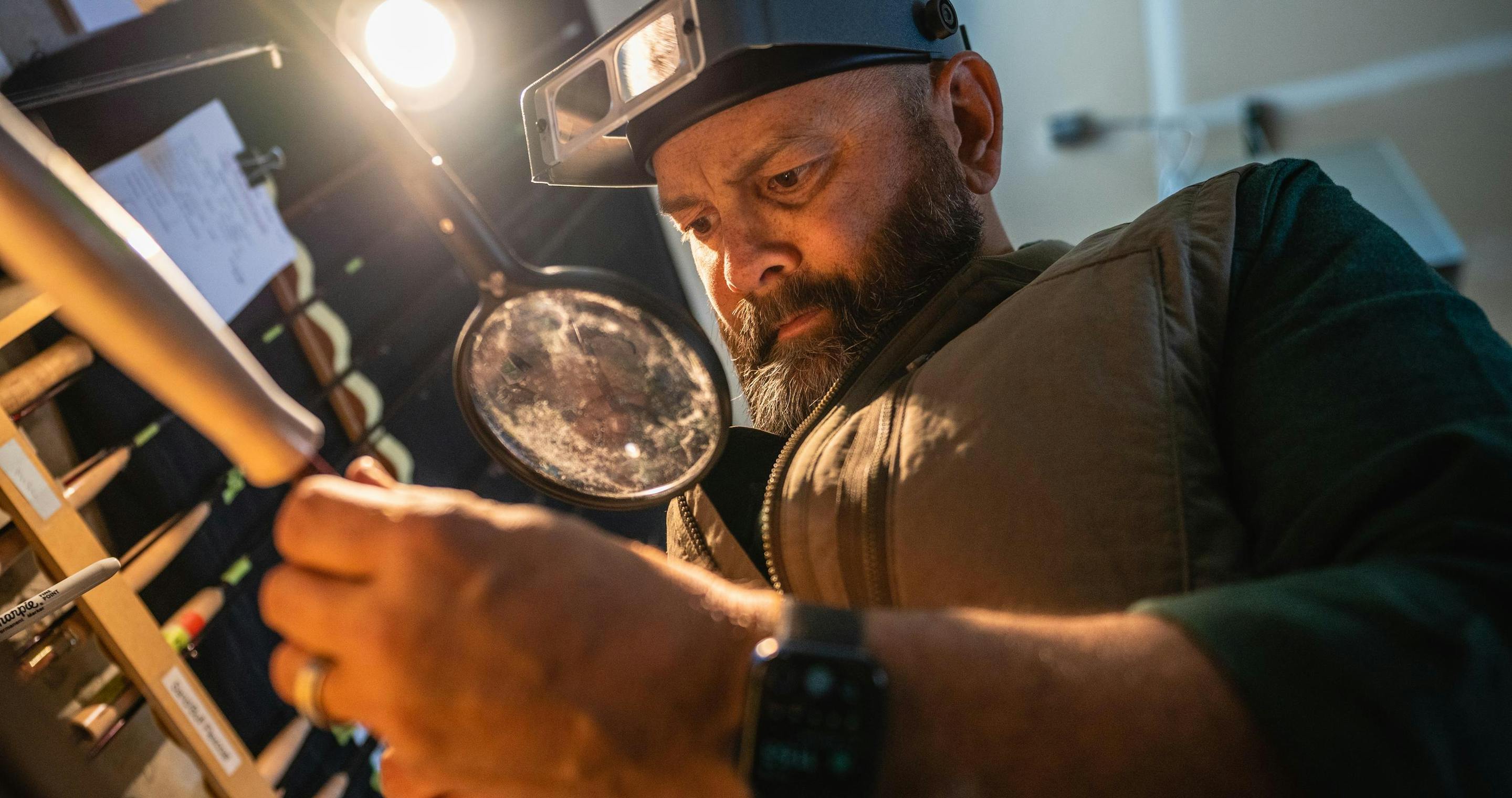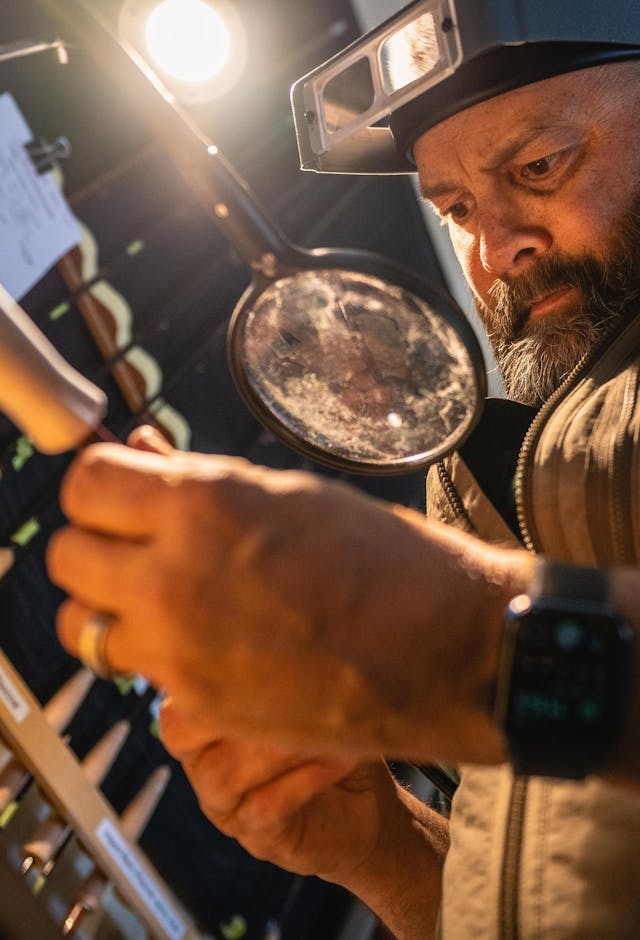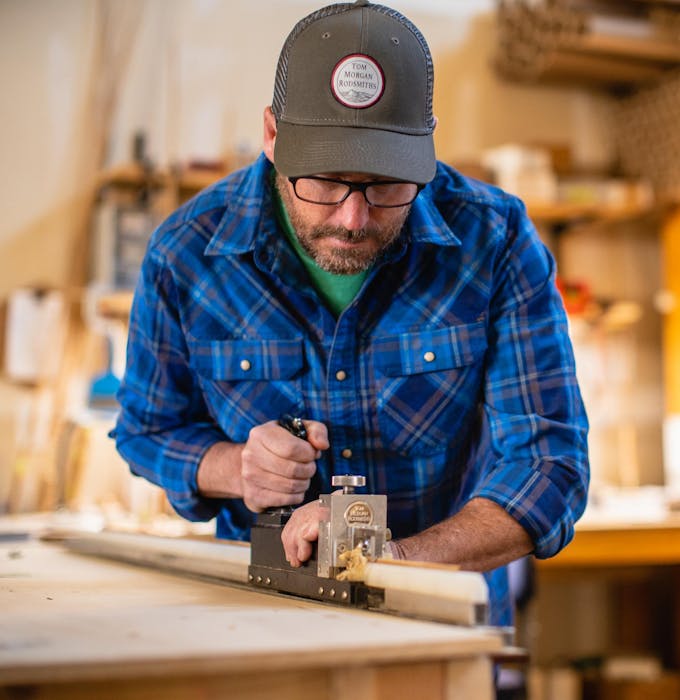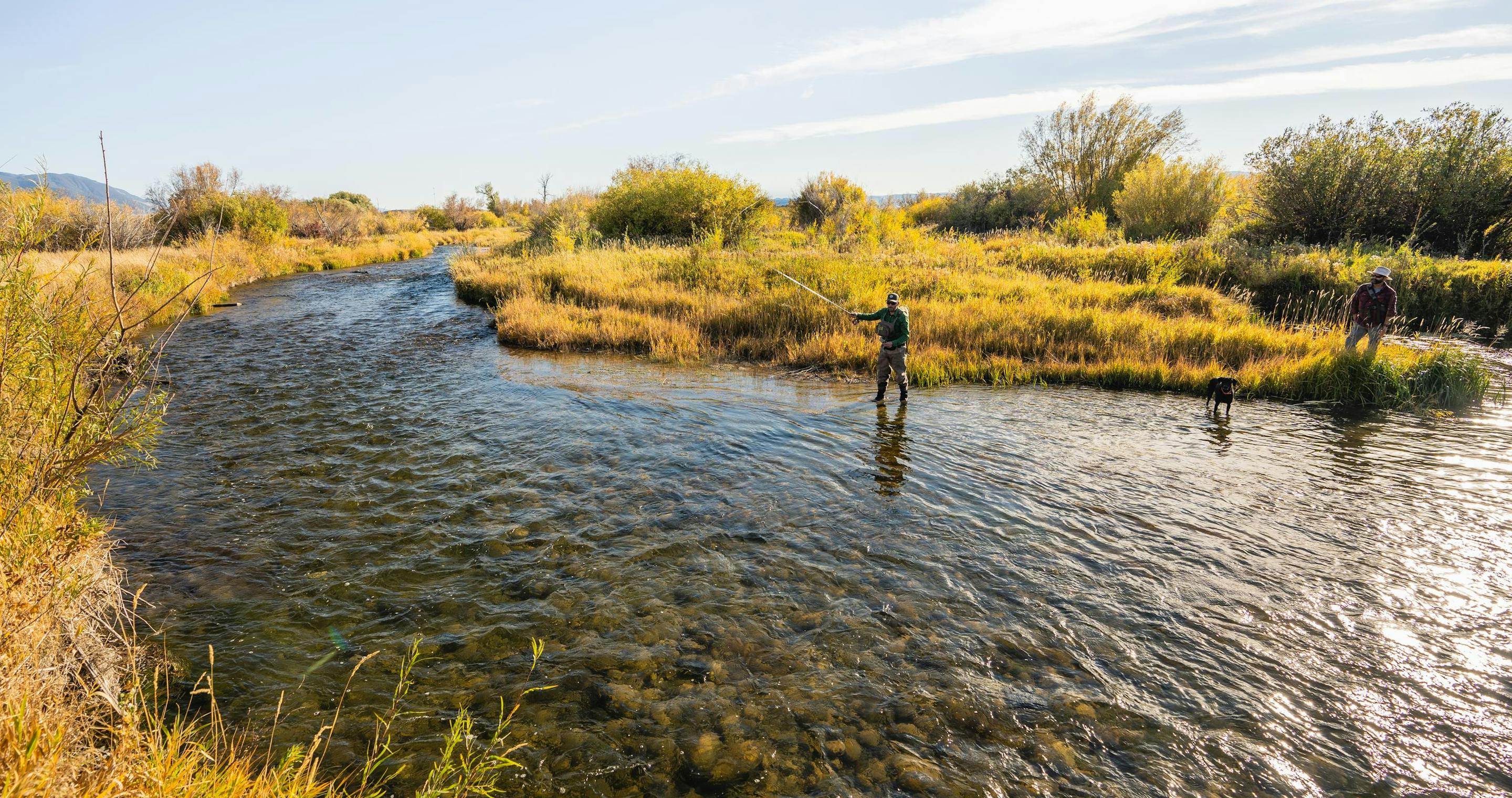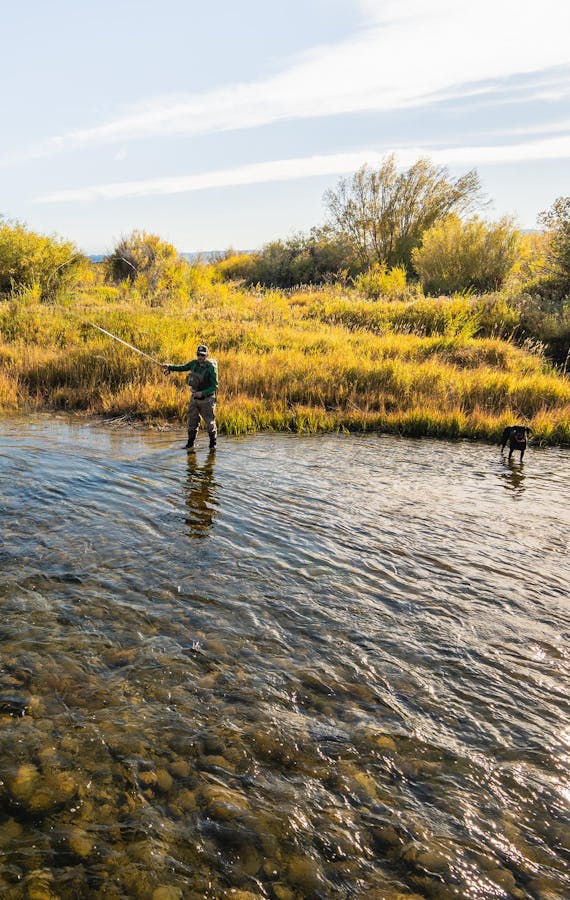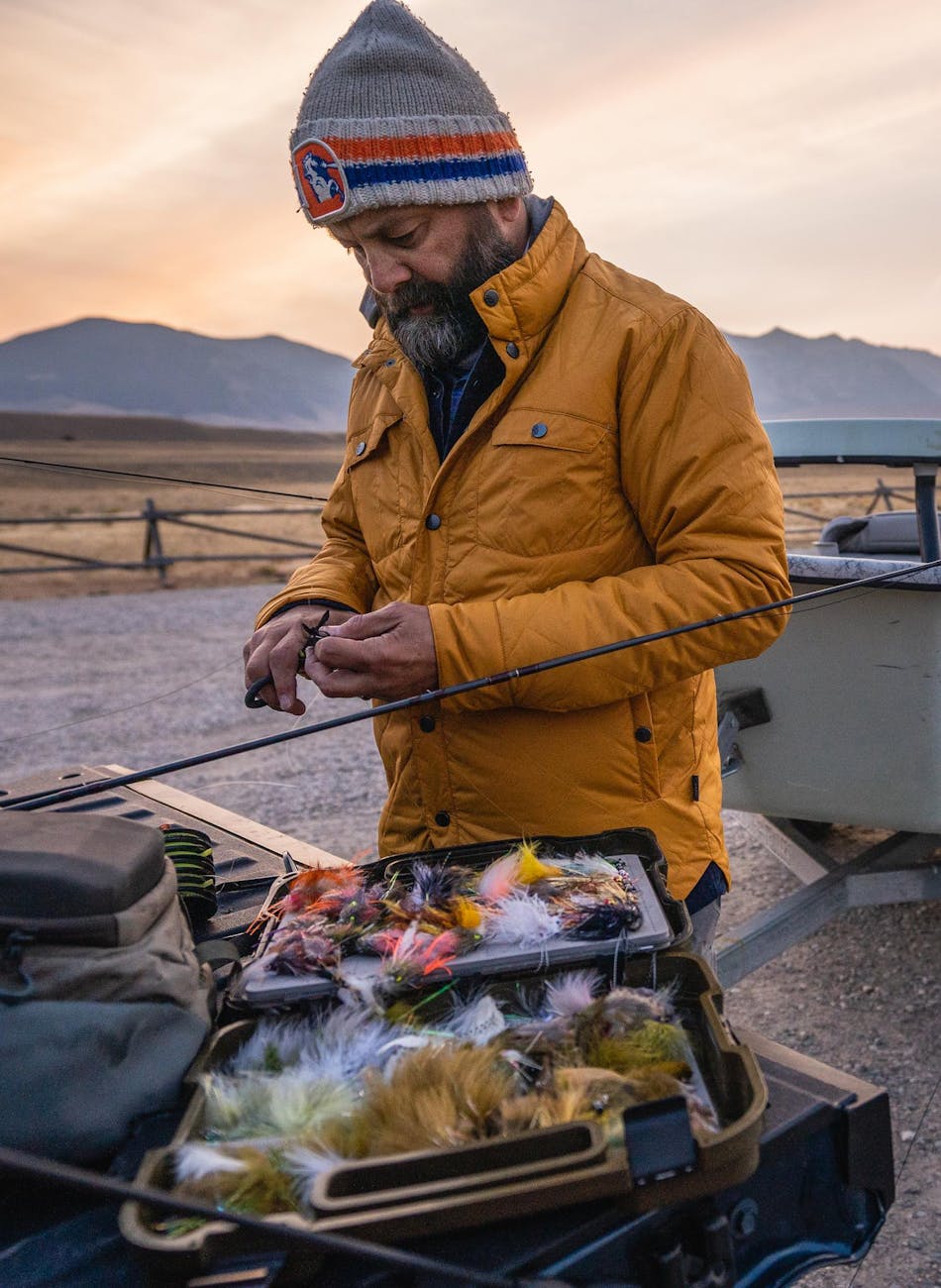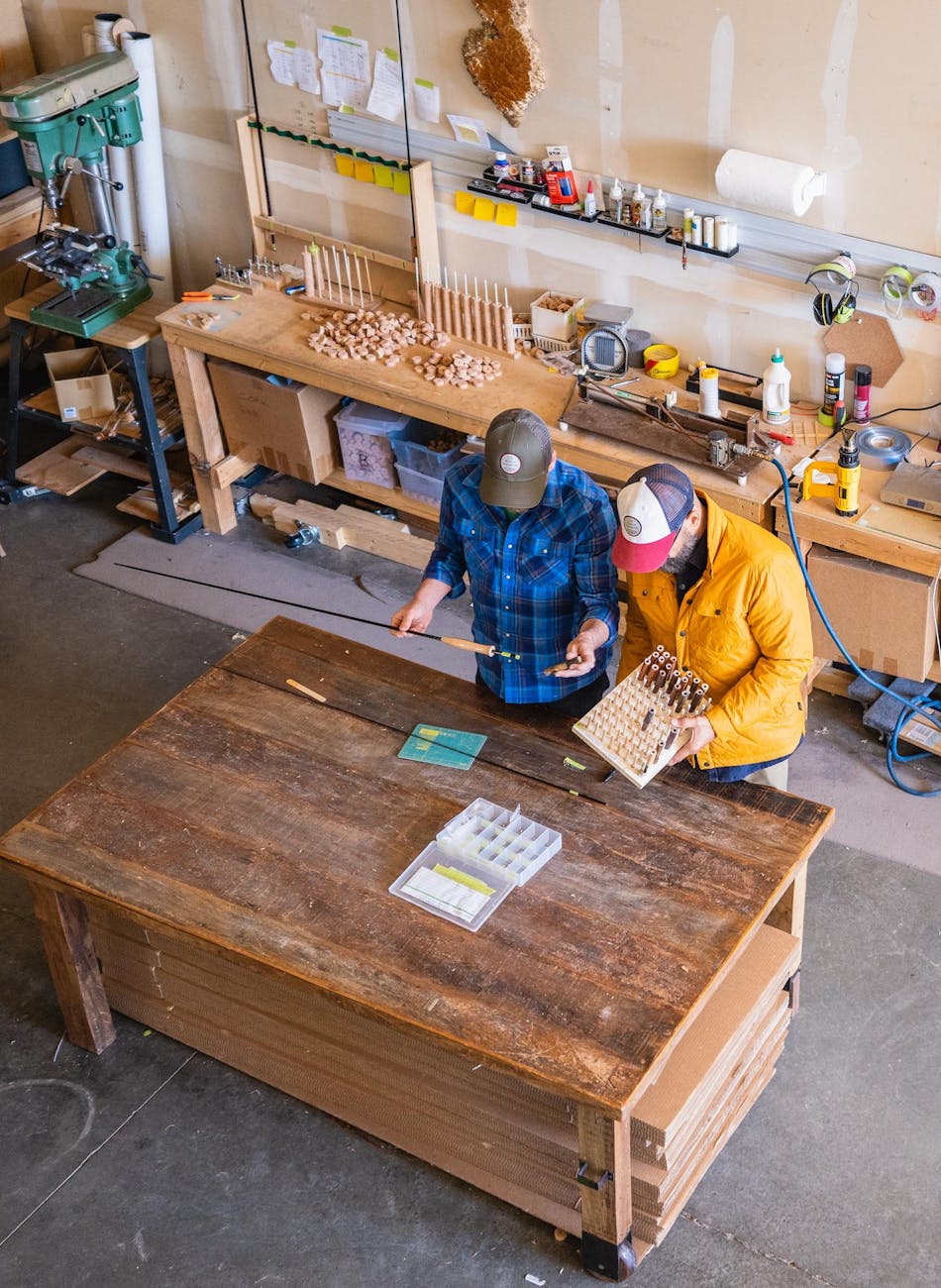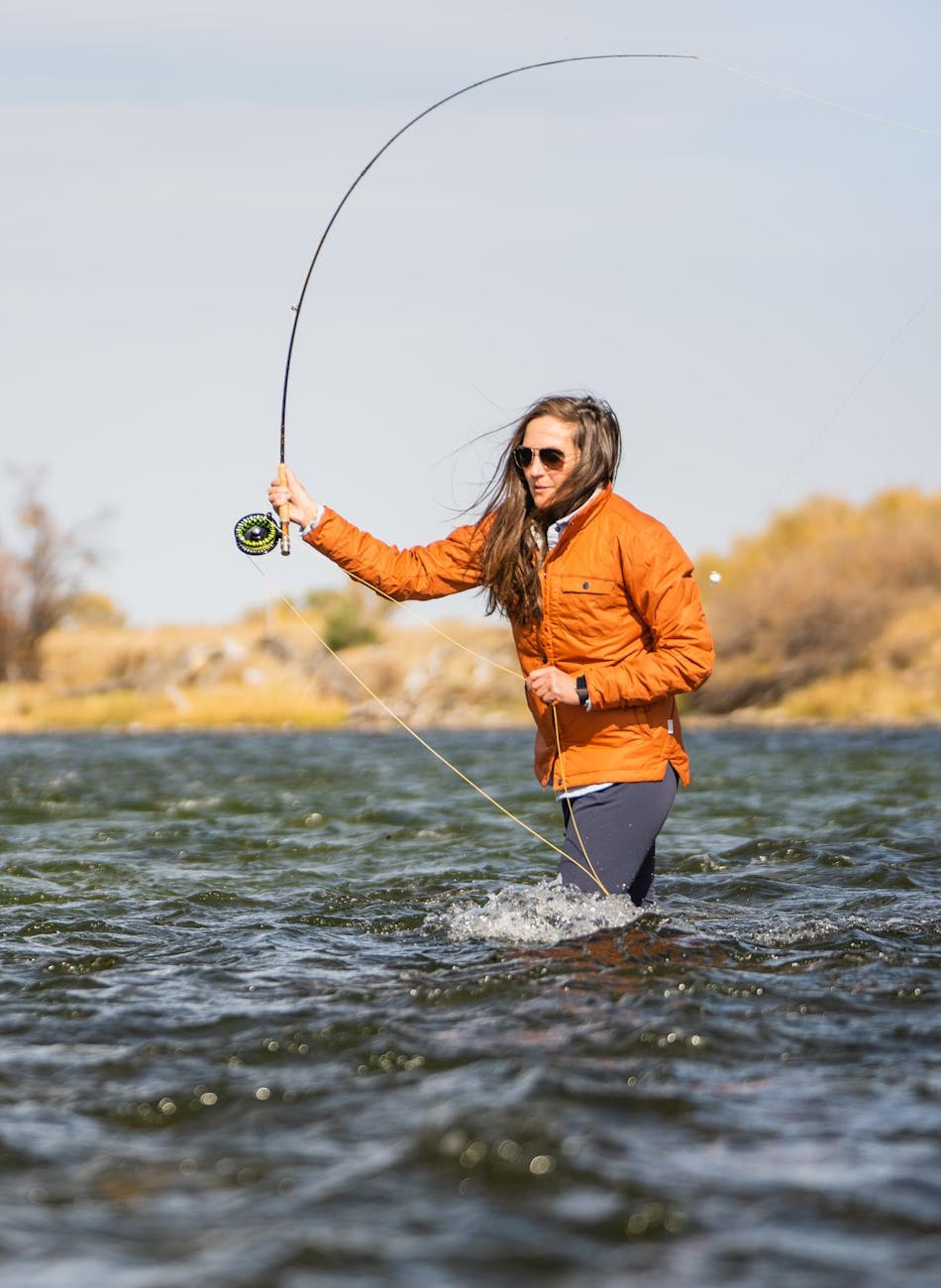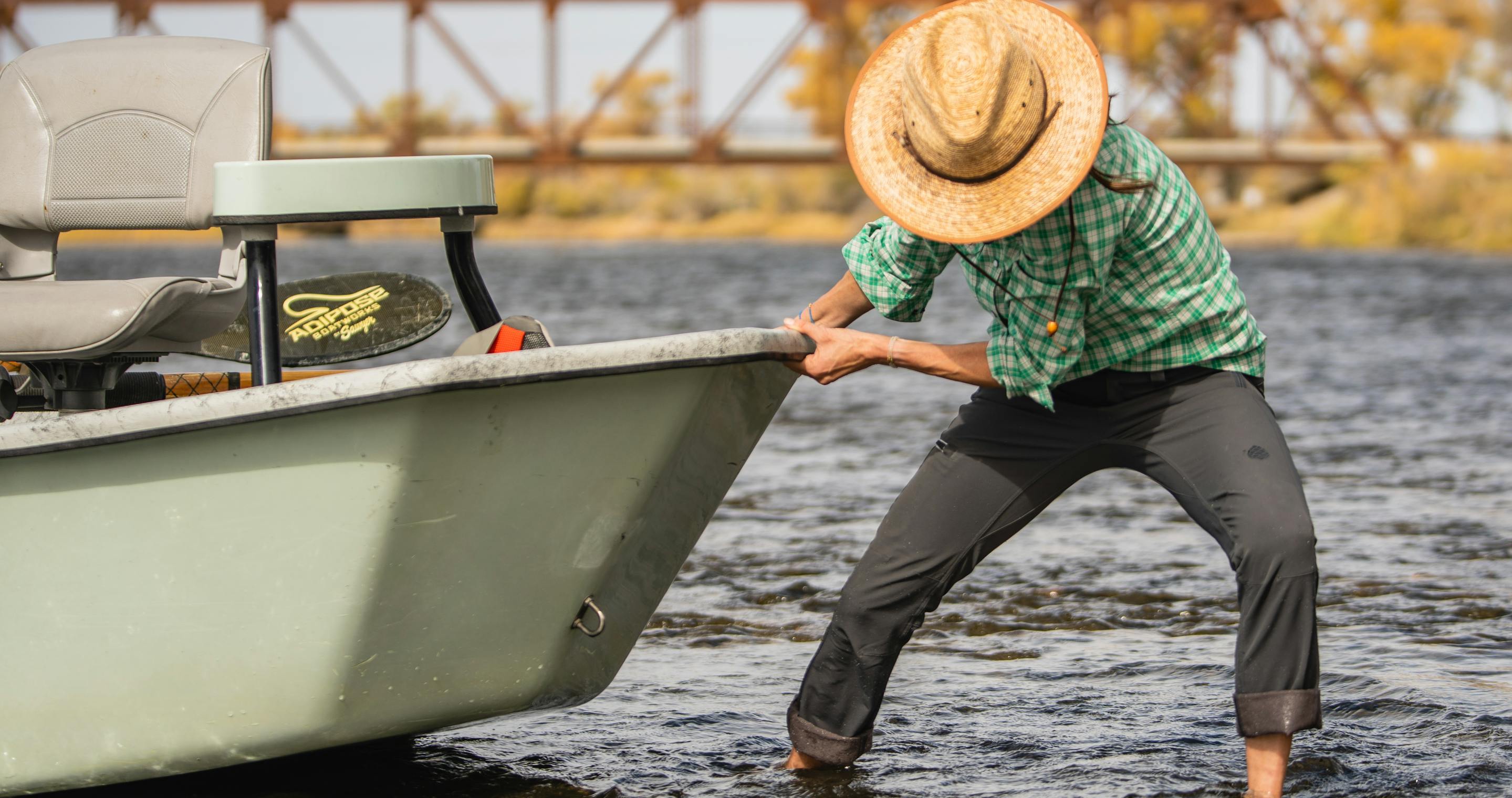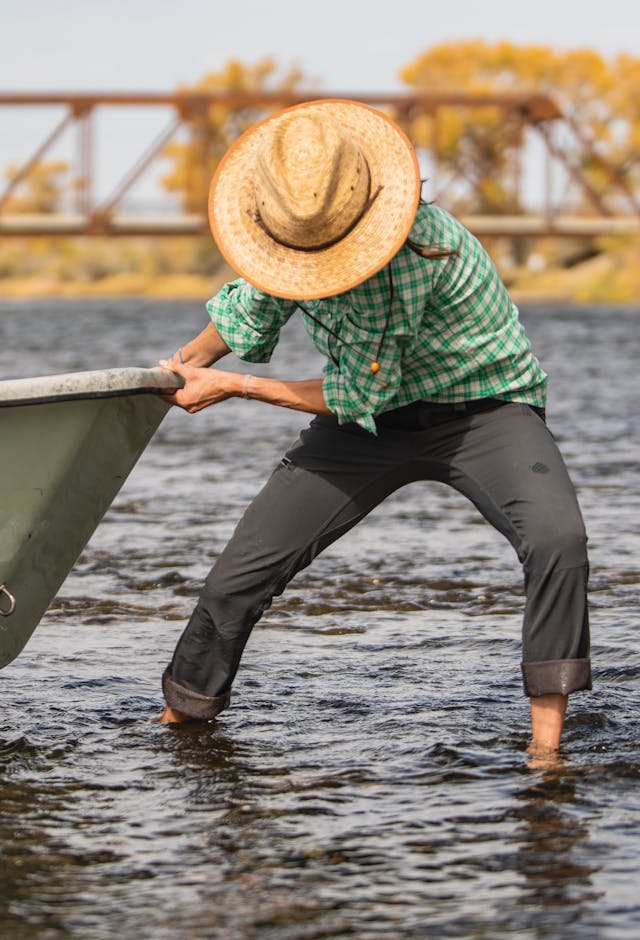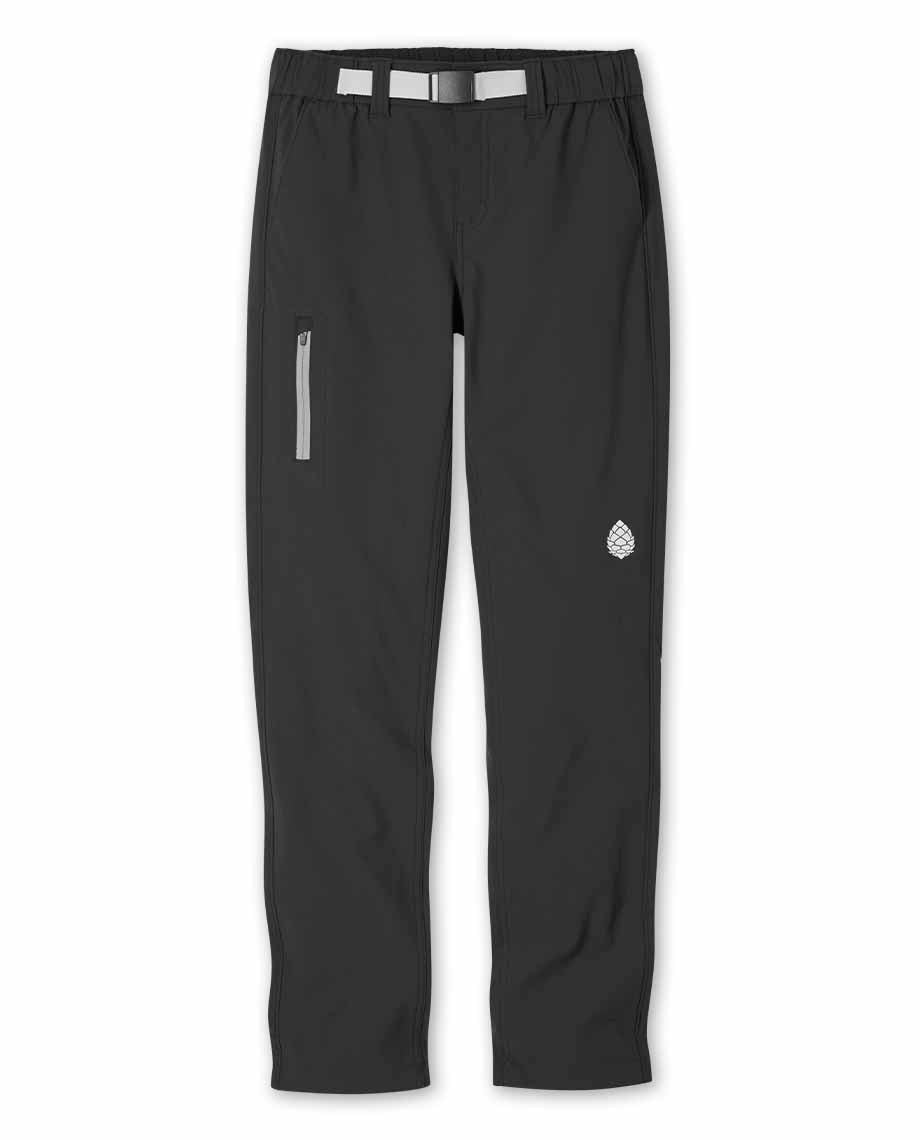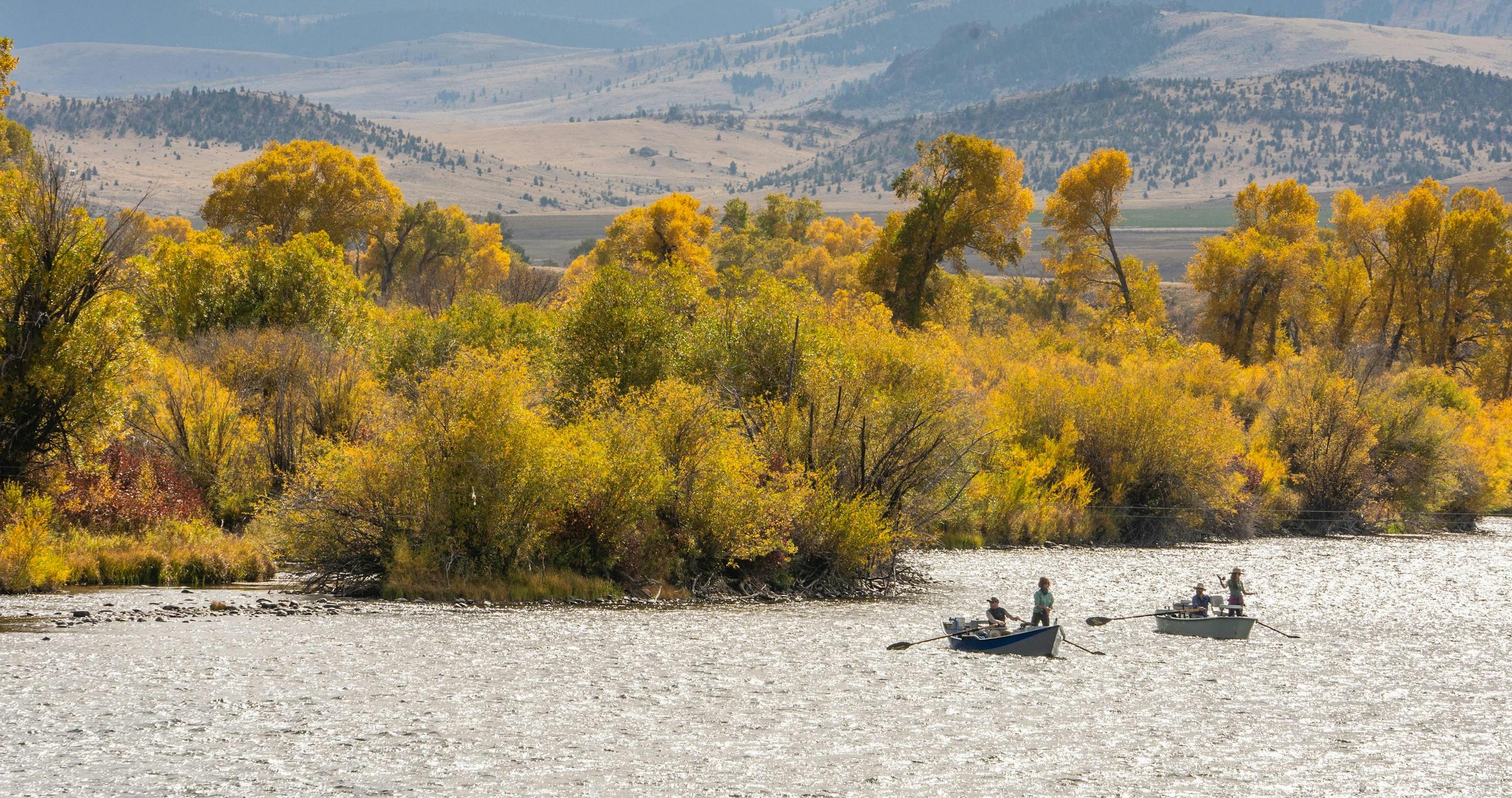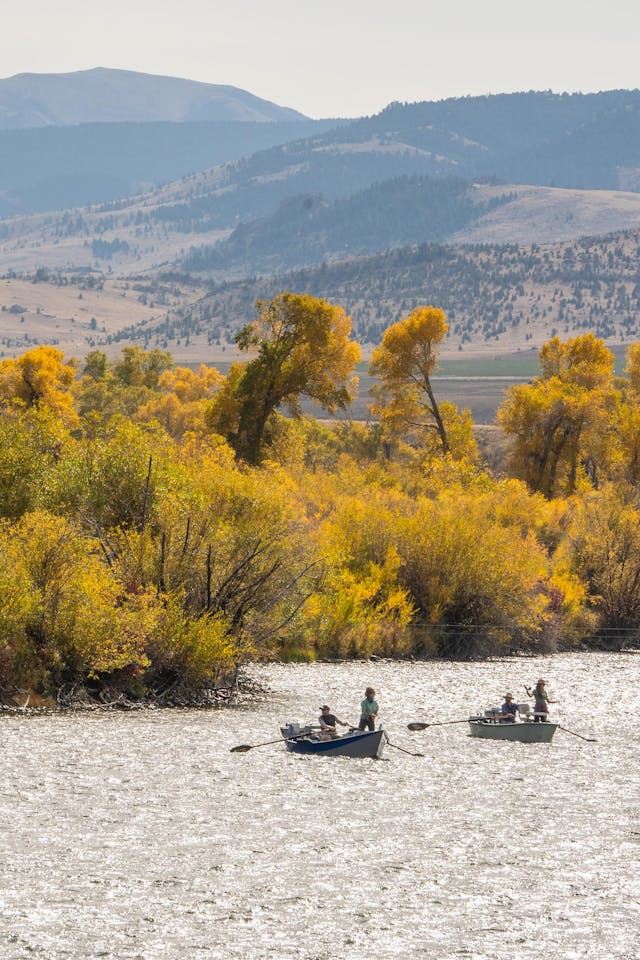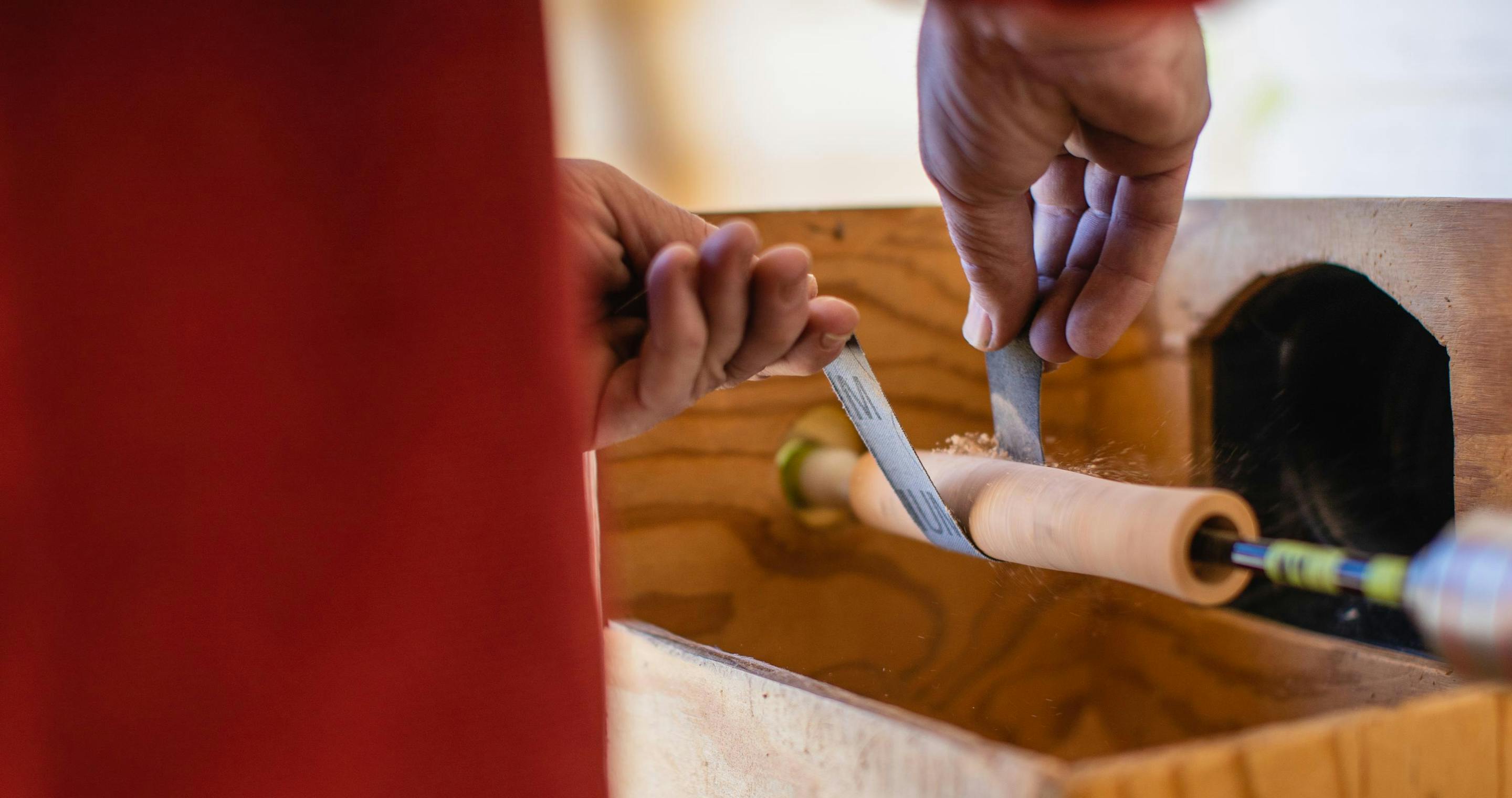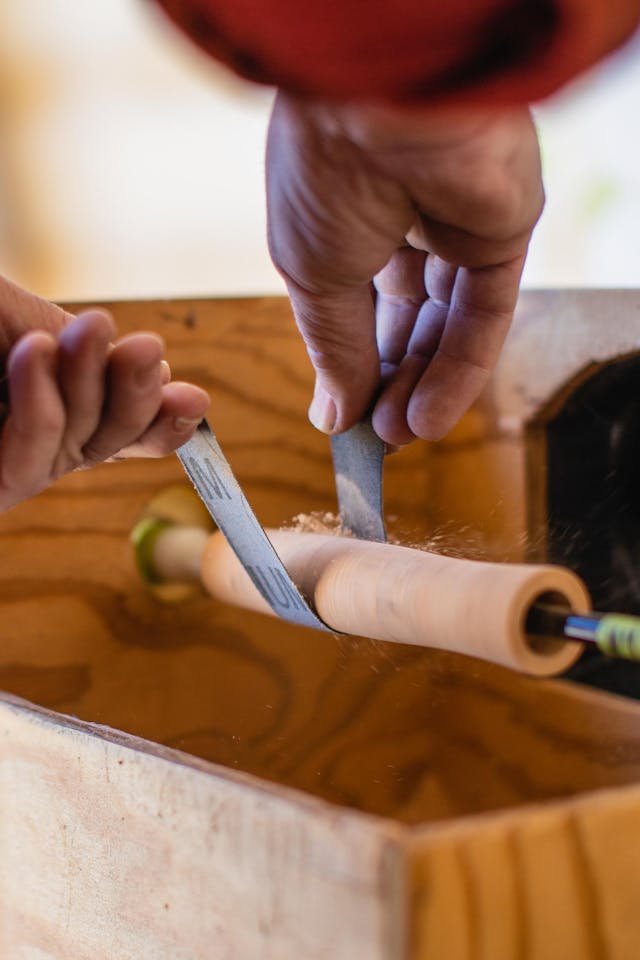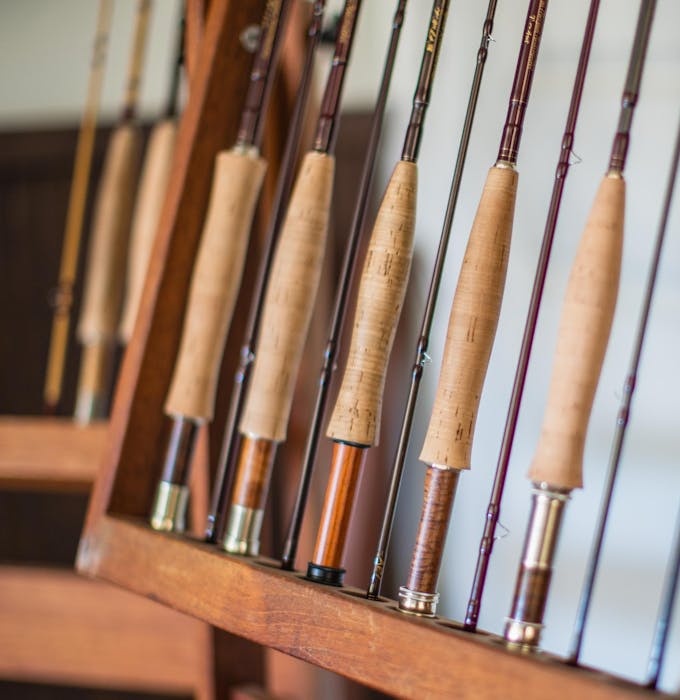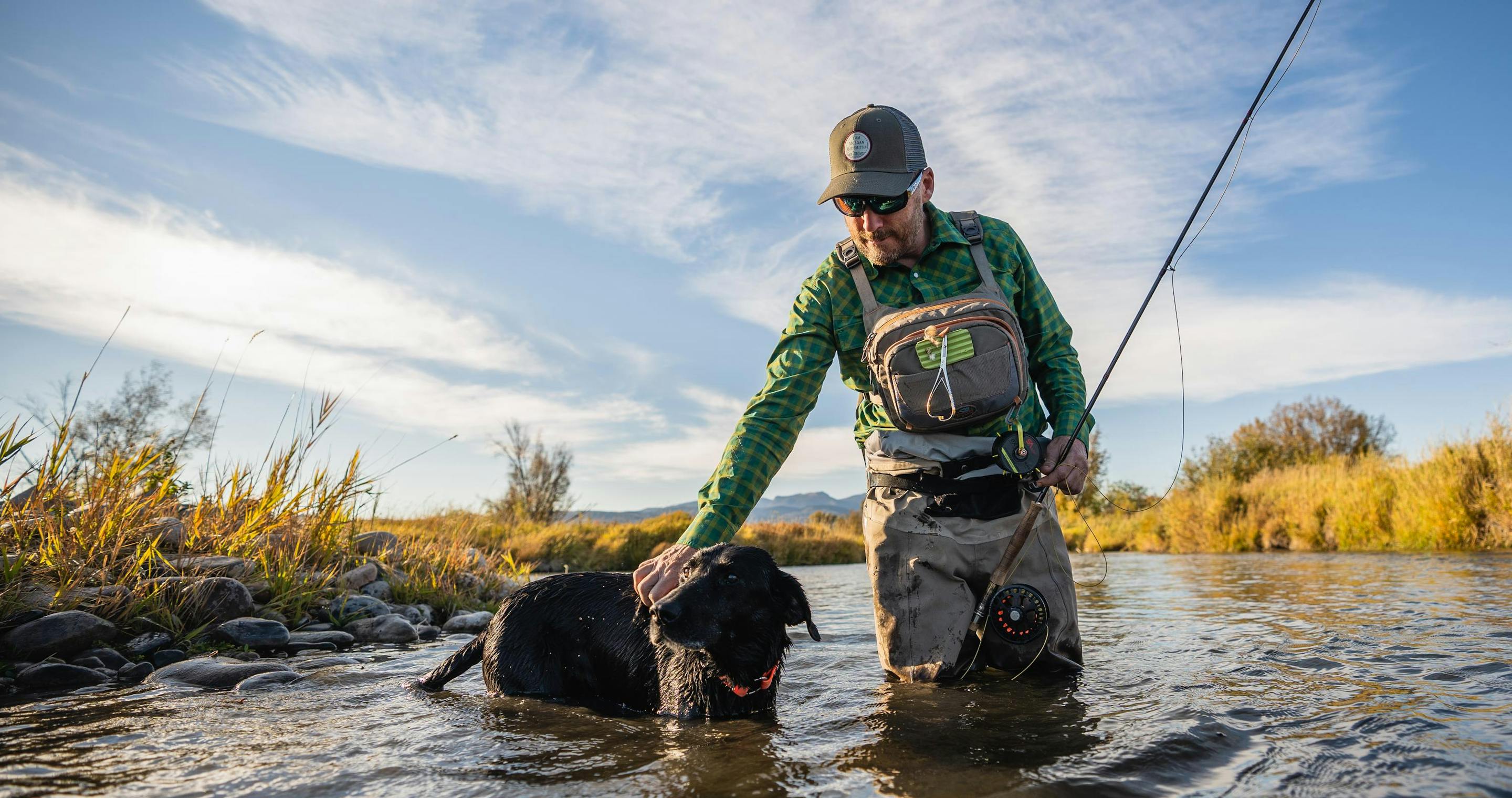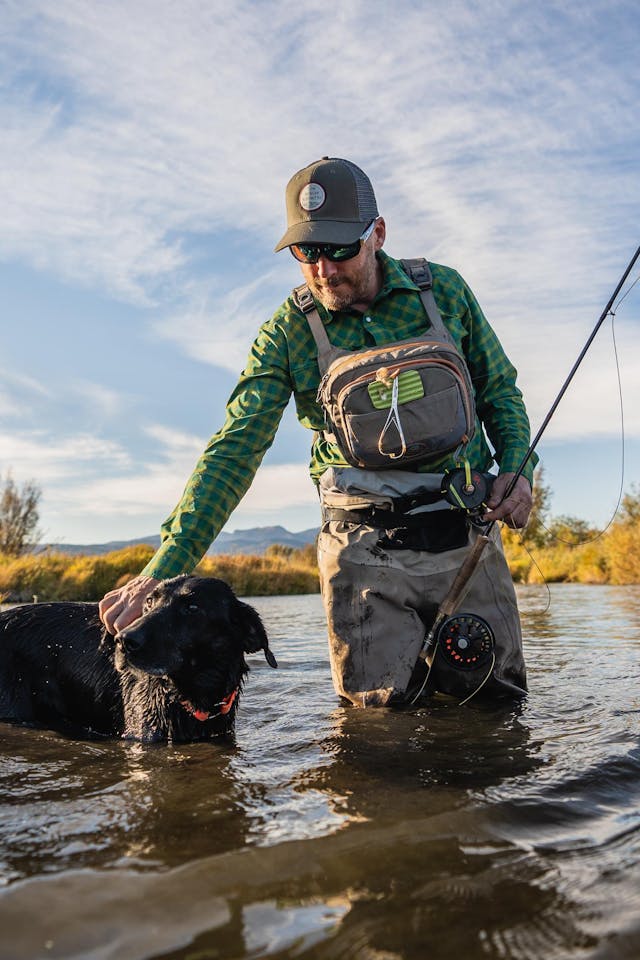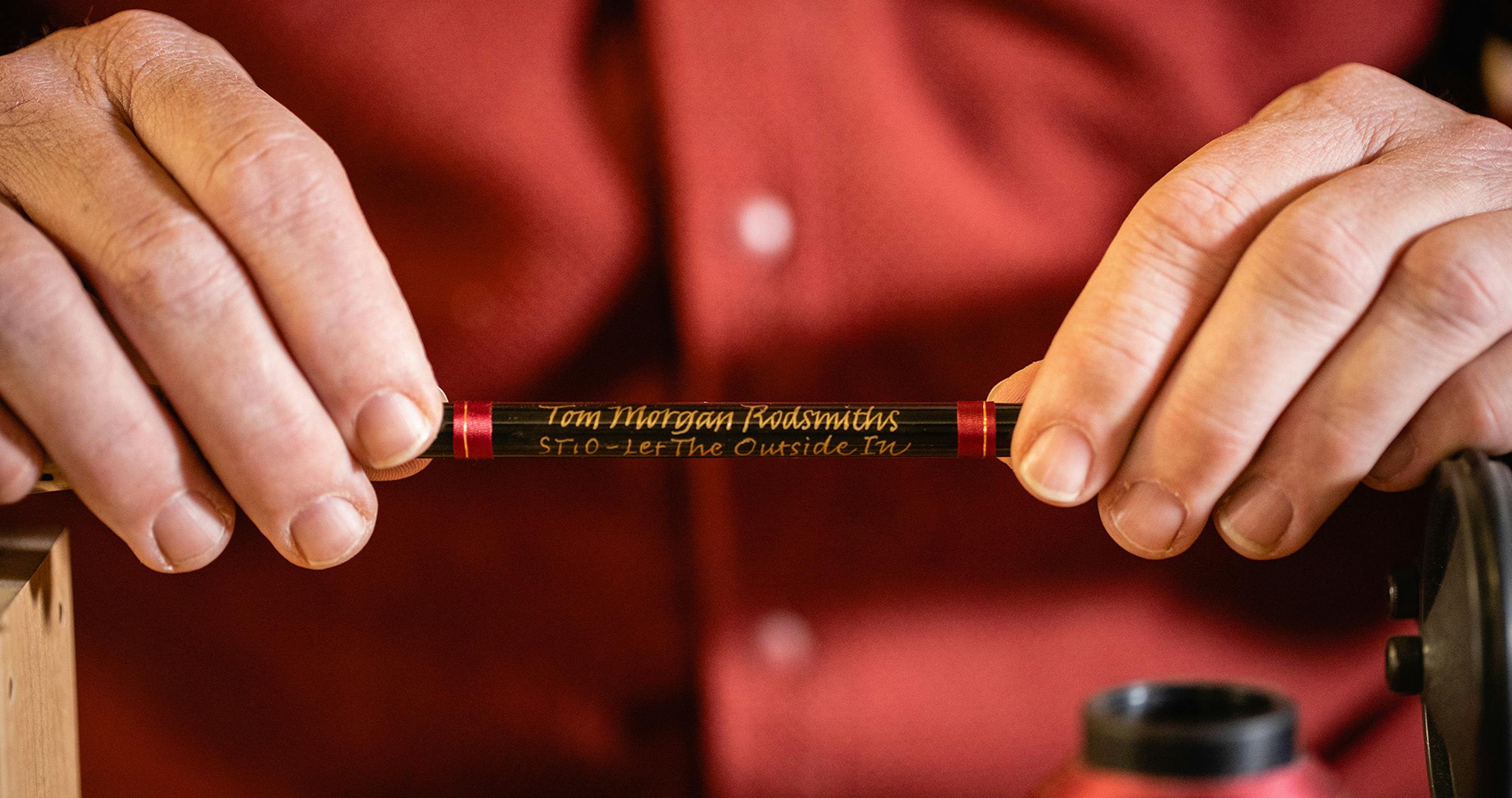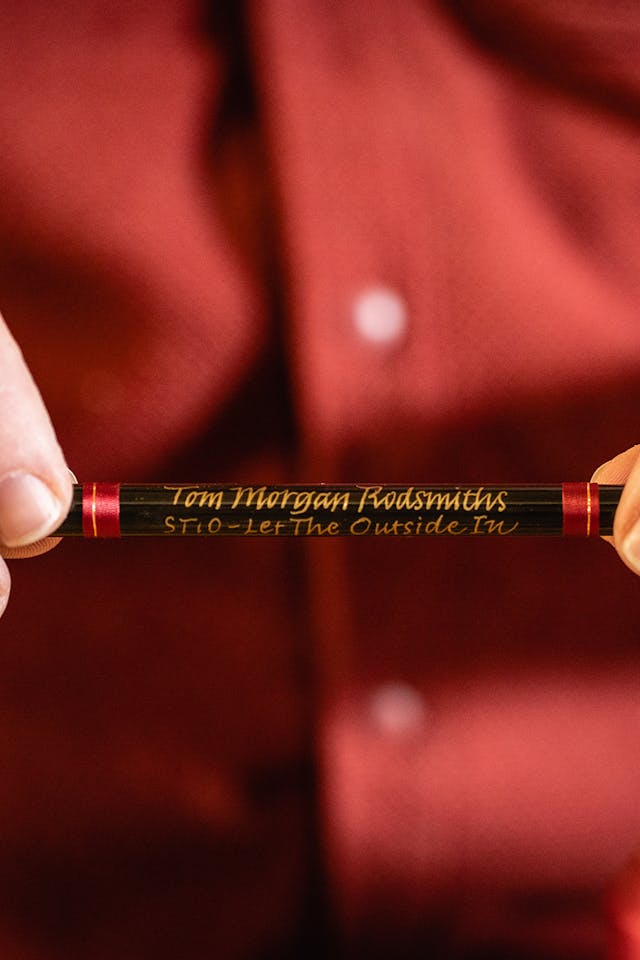Subjects: Matt Barber and Joel Doub of Tom Morgan Rods
Shifting Currents
Words by Stephen Camelio | photos by Tom Attwatter | 8 Min Read
Photos by Tom Attwatter
Dropping in to Bridger’s North Bowl. Bombing down the Leverich Trail on your bike. Running the rapids on the Gallatin River. Standing waist deep in the Yellowstone River. Whether you’re on skis, on foot, on the water or on a bike, enjoying the landscape of a mountain town takes a lot of balance.
And balance, though of a different kind, was exactly what Matt Barber and Joel Doub were seeking when they bought Tom Morgan Rodsmiths, the small-batch manufacturer of handmade bamboo and graphite fly rods, and moved with their families to Bozeman, Montana in January 2017.
Before their move, the duo lived in Denver. Doub, a Front Range native, and Barber, an East Coast transplant, loved that the Mile High City afforded them a life of both culture and adventure. But before long, they realized they were spending just as much—or more—time in the car getting to the mountains or rivers as they were actually skiing, riding or fishing.
Looking for a change, they started a checklist of things they needed in the place to move their young families. Their priorities included, according to Doub, “build something tangible, connect directly to customers and be somewhere we can enjoy what we like to do. Moving to Bozeman and taking over TMR checked all those boxes.”
Bozeman, in southwestern Montana, is a college town of about 50,000 people. Just over an hour from Yellowstone National Park and situated near Blue Ribbon trout streams, world-class skiing and lots of open space, the town’s population has grown exponentially in the past decade, but it still retains a small-town feel.
A renowned rodmaker, Tom Morgan grew up in Montana. Part of his reasoning for selling his business to two out-of-staters was that they promised to keep the company local—and Barber and Doub wouldn’t have had it any other way. “Because we have kids, the appeal of a mid-sized mountain town was the schools, the Museum of the Rockies, and the diversity that comes with being in a college town,” Barber explains.
Of course, culture was only one half of the equation, with the proximity to outdoor adventure being an equally important element. “We can see the front side of Bridger Bowl from the shop, so we can ski in the morning and be back at the shop by lunch,” Barber notes. “Or we can drive 15 minutes and wet a line on a local river after work without having to spend all day in the car,” Doub adds.
Just as the business is synonymous with Montana and, as anyone who has seen or read A River Runs Through It knows, so too is the sport of fly fishing. These deep roots add another profound connection between what Barber and Doub do and where they’ve chosen to do it.
“I can’t imagine building rods in other parts of the country to use here,” Barber says. “It’s easy for us to say to someone that our 8 foot 4 weight is great to fish over on Depuy’s Springs Creek, but for fishing on a windy day on the Henry’s Fork I’d rather use our 8 foot 3 inch 5 weight bamboo to punch line out through the wind. People design rods in the abstract for fishing this type of place, but it’s easier and feels purer to be doing your R&D in the center of it.”
It helps that Bozeman’s sense of community intertwines with the fly-fishing world that they are professionally immersed in. “When I brought our son to his first day of preschool, I met four other parents involved in the fly-fishing business and we’ve ended up working with all of them in some capacity,” Barber says.
Beyond fly fishing, Doub notes that the insular mountain town mentality that can come with being a little isolated from the outside world has been beneficial to their business, helping them create partnerships and find out-of-the-box solutions.
“There are a lot of entrepreneurs or people supporting entrepreneurs here, which creates a really welcoming environment for a small businessperson,” he says. “Maybe it’s because there are no big companies, but if you have a problem, someone will say ‘I can help with that’ or ‘I know someone in town,’ so the community solves its own problems and supports its own.”
Employing seven locals, there’s a small-town feel to Tom Morgan Rodsmiths which suits Doub just fine. After years of working in a large, faceless corporation, he’s excited to be interacting with customers.
“We get to know the people who buy our rods, they are excited to get one and we hear how it works out,” he remarks. “Whether it’s over the phone or in person, we meet almost all of them. It’s a great added level of accountability when you know who you are making a rod for.”
For Barber, making fly rods is the classic example of someone finding the special harmony of when a passion and profession intersect. “I grew up in an old Victorian house that always needed fixing, so all my life, I’ve built things,” he says. “When I was teaching, I came home and worked with my hands—fly tying or building a drift boat.” Just like any small business owner, Barber has stresses; but, unlike when he was teaching, by working with his hands his stress relief is built right into his job.
When it comes to enjoying what they do, it also helps that Doub and Barber are both diehard fly fishers. “I could make beautiful hand carved wood bows with the same level detail but I wouldn’t have a passion for it because I don’t shoot bows,” Barber notes. “I love fly fishing, and even as much as we are around fishing, the thing that we crave to do in our free time is go fishing.”
Together they often juggle the manufacturing side of the business, which all takes place by hand inside their 2,500-square foot shop, along with sales, marketing and customer service. The latter can mean giving tours of the shop, showing customers the progress through the rod building process or, just like everyone, sitting at a desk dreaming of going fishing. Of course, it’s hard to beat those days when fishing is actually a part of the job.
“I like that I can meet a client on DePuy’s to test out some rods and get some fishing in,” Barber says. “But I love that I can do it and still be back to pick up my son from school.” Therein lies the true appeal of Bozeman and mountain towns like it: a work-life equilibrium between family time and outdoor time, which are often one in the same.
“As much as people think we’re out on the water every day or from morning to night, that’s not what our fishing days look like,” Barber says. “For me, a day on the river can mean having a rod in the boat, but not fishing at all—just spending time with my wife, son and dog.”
Doub echoes the sentiment, noting his family hikes a lot near their home or plays in the river—adventures that take only a few hours because of Bozeman’s proximity to mountains and rivers. “I hated hiking as a kid because we had to drive forever and go all day,” adds Doub. “Being here, it just seems more doable and economical, both in terms of time and money.”
Speaking of money makes Barber remember a story. “My friend did really well in NYC after college. He came out west to go skiing, so I met him on the mountain. It struck me that he worked all year to take a one week vacation where I lived. I thought to myself, ‘Wouldn’t it be much easier to have a job that you loved and allowed you to be here the other 51 weeks of the year?’”
Learn more about Tom Morgan Rodsmiths here.
Stio X Tom Morgan Rodsmiths For American Rivers
Handmade Fly Rods, Healthy Rivers
Coming late August 2022, Tom Morgan Rodsmiths and Stio are turning artistry into advocacy by offering 5 handcrafted, custom-made fly rods for sale in support of American Rivers. All of the proceeds from these hand-engraved fly rods will go directly to American Rivers’ efforts to protect clean waters. Lightweight yet durable, each rod comes in a custom wooden carrying tube protected by a cover sleeve made with the same rugged material as Stio’s West Butte Collection. Stay Tuned to hear more about the story and how to enter for a chance to purchase one of these limited-edition rods.
Top Stories
Check out all the Top stories
Follow us @stio
See how people are living the mountain life everyday in our gear.
